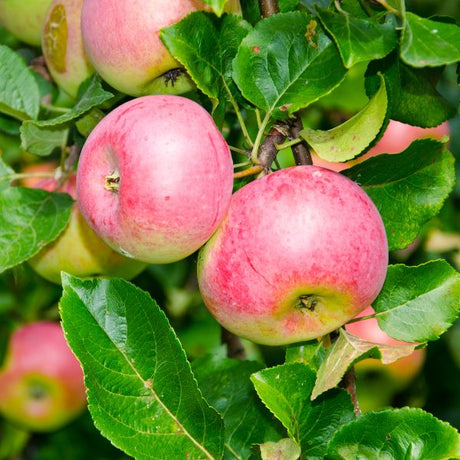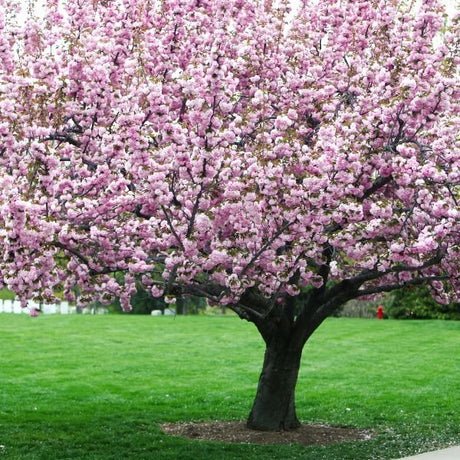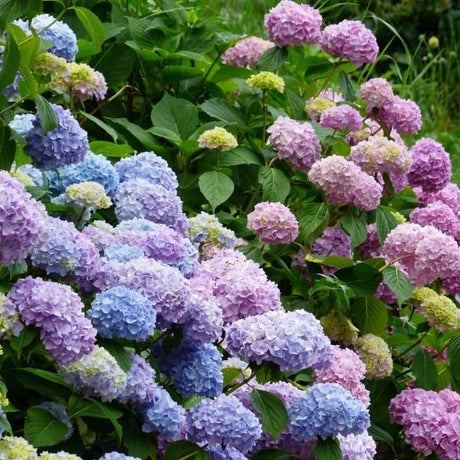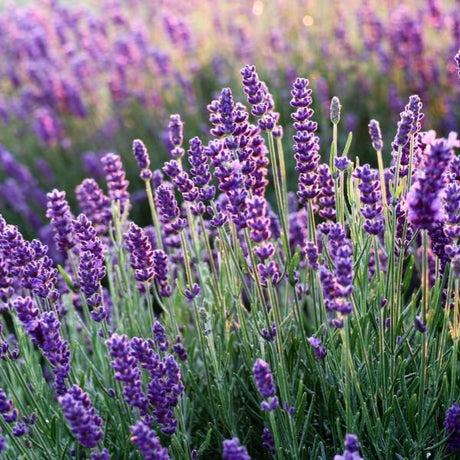Big Jim Loquat Tree
Eriobotrya japonica 'Big Jim'
- Stay Protected with Plant Sentry ™
Big Jim Loquat Tree is backordered and will ship as soon as it is back in stock.
Plant Sentry™
Plant Sentry™

Plant Sentry™ Protected
Your order is protected by our compliance system that:
- Prevents restricted plants from shipping to your state
- Ensures plants meet your state's agricultural requirements
- Protects gardens from invasive pests and diseases
Delivery and Shipping
Delivery and Shipping
Delivery and Shipping
Fast, Safe Plant Delivery
Ships in 3-4 business days • Tracking provided • Weather protected
| Under $50 | $9.99 |
| $50 - $99.99 | $14.99 |
| $100 - $149.99 | $16.99 |
| $150+ | $24.99 |
✓ Zone-specific timing • ✓ Professional packaging • ✓ Health guarantee
Understanding Plant Options
Nature Hills offers plants in two main formats:
- Container Plants: Grown in pots with soil, sized by container volume and plant age
- Bare Root Plants: Dormant plants without soil, sized by height measurements
Container Plant Sizes
Container sizes indicate plant age and growing capacity rather than liquid volume equivalents. Our containers follow industry-standard nursery "trade gallon" specifications, which differ from standard liquid gallon measurements.
Young Plants (6 months to 18 months old)
| Container Size | Actual Volume | Metric Equivalent |
|---|---|---|
| 2" x 2" x 3" | 0.18 - 0.21 dry quarts | 0.20 - 0.23 dry liters |
| 4" Container | 0.31 - 0.87 dry quarts | 0.35 - 0.96 dry liters |
| 4.5" Container | 0.65 dry quarts | 0.72 dry liters |
| 6" Container | 1.4 dry quarts | 1.59 dry liters |
| 1 Quart | 1 dry quart | 1.1 dry liters |
| 5.5" Container | 1.89 dry quarts | 2.08 dry liters |
Established Plants (18 months to 2.5 years old)
| Container Size | Actual Volume | Metric Equivalent |
|---|---|---|
| 2 Quart | 2 dry quarts | 2.2 dry liters |
| #1 Container | 2.26 - 3.73 dry quarts | 2.49 - 4.11 dry liters |
| 5" x 5" x 12" | 3.5 - 4.3 dry quarts | 3.85 - 4.74 dry liters |
Mature Plants (2-4 years old)
| Container Size | Actual Volume | Metric Equivalent |
|---|---|---|
| #2 Container | 1.19 - 1.76 dry gallons | 5.24 - 7.75 dry liters |
| #3 Container | 2.15 - 2.76 dry gallons | 8.14 - 12.16 dry liters |
Large Plants (3-5 years old)
| Container Size | Actual Volume | Metric Equivalent |
|---|---|---|
| #5 Container | 2.92 - 4.62 dry gallons | 12.86 - 20.35 dry liters |
| #6 Container | 5.25 - 6.01 dry gallons | 23.12 - 26.42 dry liters |
| #7 Container | 5.98 - 6.53 dry gallons | 26.34 - 28.76 dry liters |
Bare Root Plants
Bare root plants are sold by height from the root system to the top of the plant. Plants may exceed minimum height requirements.
Common Sizes:
- Trees: 1 foot, 2 feet, 3 feet, 4 feet, 5 feet, 6 feet
- Shrubs & Perennials: 1 foot, 18 inches, 2 feet
Important Notes
Container Volume Specifications
- Trade Gallon Standard: Our containers follow industry-standard "trade gallon" specifications established by the American National Standards Institute (ANSI Z60.1) for nursery stock
- Volume Variations: Actual soil volume may vary due to plant root systems and growing medium settlement
- Age Indicators: Container size primarily indicates plant age and maturity rather than liquid volume equivalents
Growing Conditions
- Plant size can vary based on variety and growing conditions
- Container size helps indicate plant maturity and establishment level
- Larger containers generally mean more established root systems and faster landscape establishment
Seasonal Availability
- Bare root plants are available seasonally when dormant
- Container plants are available throughout the growing season
- Specific varieties may have limited availability in certain sizes
Questions?
For questions about specific plant sizes or availability, please contact our plant experts who can help you choose the right size for your landscape needs.
Plant Highlights
Big Jim Loquat Tree highlights at a glance!
Specifications
Specifications
-
Brand
-
Botanical Name
-
Growing Zones
-
Mature Height
-
Mature Spread
-
Sun ExposureFull Sun
-
Moisture
-
Soil
-
Growth RateMedium
-
Flower Color
-
Pollinator Friendly
-
Pollinator Required
-
Pruning Time
-
Bloom PeriodEarly Spring, Late Spring, Winter
-
Harvest Time
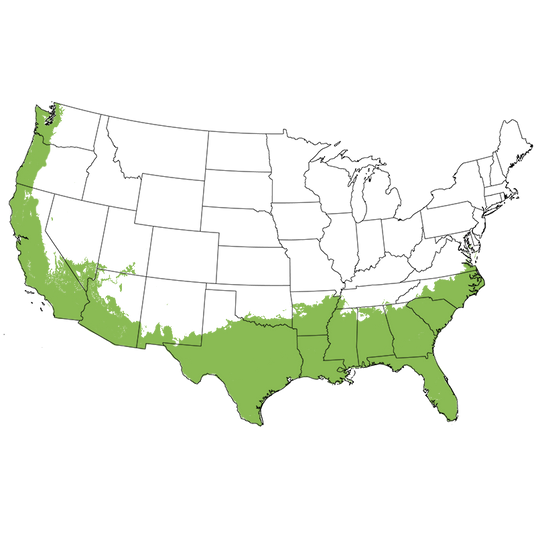
Growing Zones 8-11
Self-fruiting and resilient, the Big Jim Loquat Tree (Eriobotrya japonica 'Big Jim') is an amazing fruit, and lucky you - the Big Jim is the best of the best! It’s one of the tastiest and fleshiest Loquat varieties you will find!
Who's Big Jim? Jim Neitzel was a visionary fruit grower and a founding board member of the California Rare Fruit Growers Organization. There's a reason he named this variety after himself - it's astounding! As a proponent of people growing their own fruits and veggies, Jim Neitzel developed many great sub-tropical varieties for backyard gardens!
Its fruit grows up to 2.5 inches in clusters of up to twelve, plenty for you and your neighbors! These yellow-orange fruits taste like citrus-flavored Apricots, are easy to peel with a deep yellow flesh and few brown seeds.
Planting and Application:
Loquat fruit in the early spring, ripening typically right after most citrus fruit is done, the Loquats offer a perfect bridge between the winter citrus and the wonderful summer fruits.
Loquat leaves are lush, deep-green and lance-shaped, and these evergreens look attractive throughout the year. They make great background shrubs or showy specimen plants!
- Yellow-orange skin & easy to peel - or eat the skin for a sweet & chewy treat!
- Yellow flesh, tart citrus-apricot flavor & few seeds
- Juice keeps for up to 2 weeks in the fridge!
- Great privacy hedge or specimen ornamental
- If space is a concern, Big Jim is also very easy to Espalier.
#ProPlantTips for Care:
Big Jim Loquats are sub-tropical, thriving in full sun, perfect for patios or decks. They do well in a wide variety of soil types and are drought-resistant once established. Unlike many other sub-tropicals, Big Jim is cold hardy down to 12 degrees!
In Zones 7-8, be prepared to cover your tree with a frost blanket when extended periods of cold are predicted.
- Low water needs once established & full sun
- It can easily be pruned and kept 8 feet high or as a multi-trunked tree or shrub-form
- Roots are not invasive and readily grow in a container or planter
- Bears fruit at about 3-4 years of age
- Tough plants once established, requiring little care
Loquat fruit has many health benefits and is high in Vitamins A and C. Get ready to sink your teeth into the tastiest, largest Loquat, and check out our other Loquat tree varieties for sale now at NatureHills.com today!





